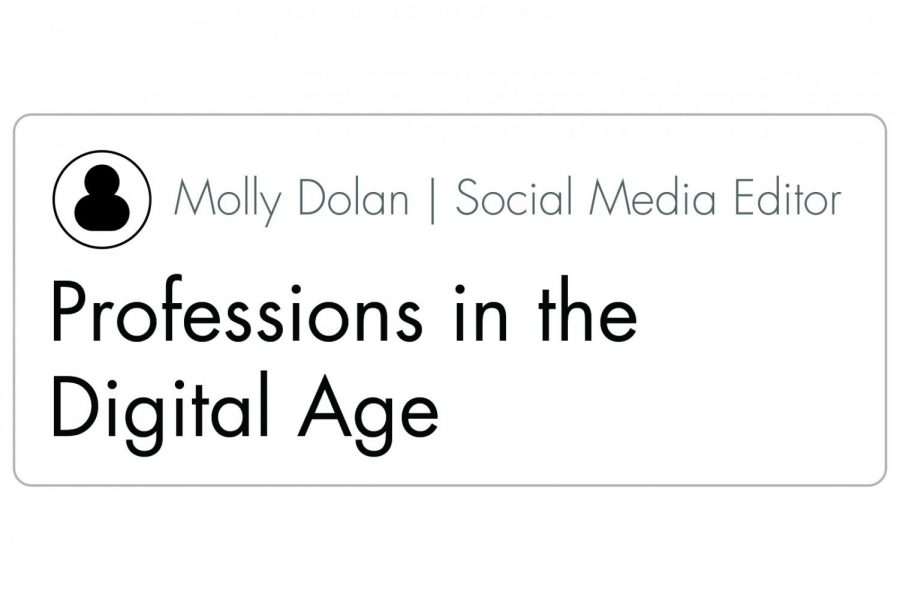Professions in the Digital Age
Social media has become such an integral part of our everyday lives that it’s hard to imagine aspects of our lives without it — including our professional lives. Now, as students preparing to enter the workforce, we are faced with the growing demand of jobs revolving around social media that are specifically targeted to our generation.
As we continue to see the increasing demand for our millennial minds, it is imperative to address how the job market was once free of the digital. Media, Culture and Communications Professor Isra Ali recalled that it was about five or six years ago when her students began to receive job offers revolving around social media.
“Employers started to care about how [students] utilized social media for marketing, journalism and more,” Ali said. “Now there are specific jobs revolved around managing social media platforms for a company.”
Even in newspapers such as WSN, social media has become a crucial tool in marketing and sharing publications with the digital world.
“I don’t know that there is any industry that hasn’t been influenced by social media,” Ali said. “I think all industries have figured out that it is in their best interests to use social media to cultivate public support for what they do and to make themselves look good even if what they do isn’t particularly sexy.”
To prepare students for such tasks, universities are integrating social media into marketing, communication and business programs to demonstrate how to utilize social media in professional environments. Ali teaches a class called Social Media Networking where students look conceptually at social media and how it affects human interaction and the public discourse.
NYU offers many other courses revolving around social media, including Social Media Strategy; Social Justice, Advocacy and Social Media, Social Media Marketing and Analytics and more. Ali predicts that teaching social media will become more prevalent in universities.
“I think there are two types of teaching that will emerge: one that will be revolved around a critical, conceptual perspective on social media and one that will get exponentially more popular about managing social media and how to translate social media into material success, money and status,” Ali said. “I can see those courses becoming more important, necessary and very popular.”
In the future, we will only see an increase in the operations and necessity of social media. As we delve further into the digital age, it is important to remind ourselves that social media only really emerged 20 years ago and yet, for a lot of us, will be something we encounter in our professional lives. Brace yourselves.
A version of this article appeared in the Monday, Nov. 13. Email Molly Dolan at [email protected].

